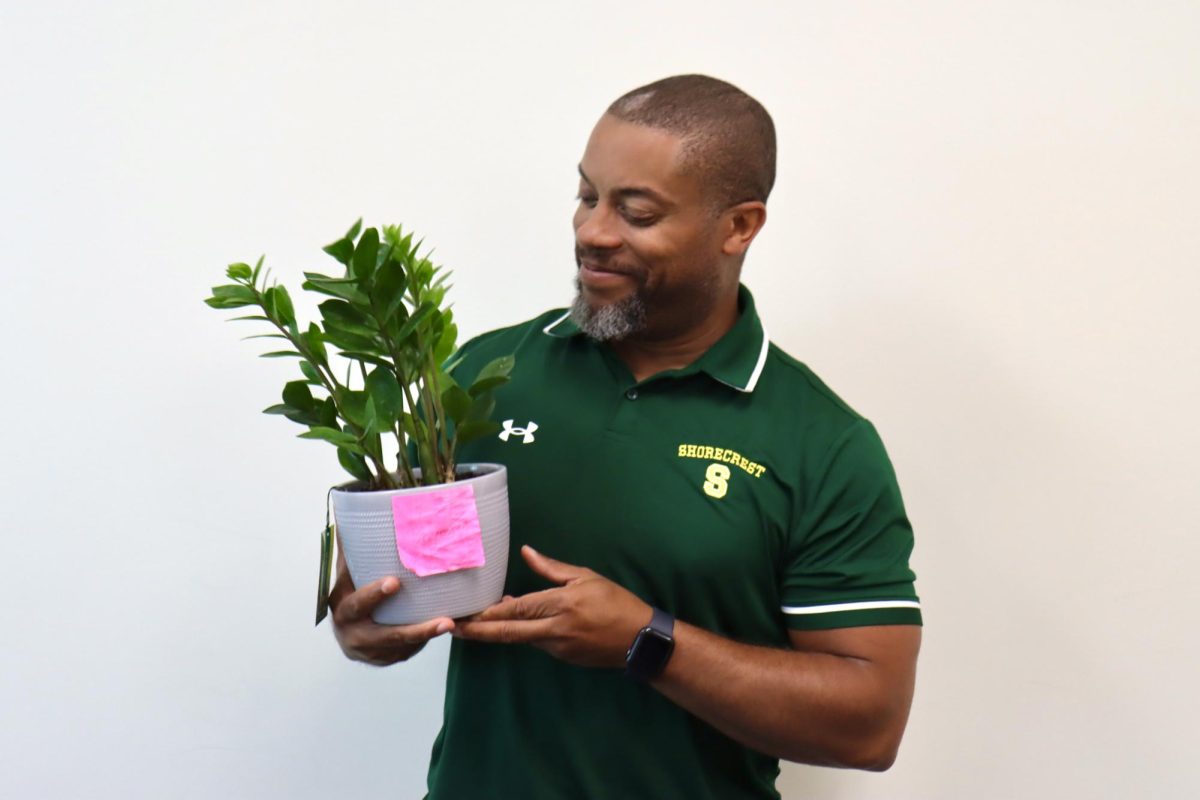Minutes before the bell rings, students file into US Health & Fitness Teacher and Track Coach Richard Cameron’s classroom as he waters the plants placed methodically on top of a small bookshelf near his desk. At the beginning of each class, a few students grab plants to set on their desks.
Having a desk plant may seem trivial, but to those who interact with them in and out of the classroom, it holds a much deeper meaning.
When sophomore Scout Brummett took Cameron’s class during her freshman year, she often grabbed plants to accompany her during class time. “I loved them,” she said. “I would sometimes put all of the plants on my desk and just sit with them there. It was nice. They made me feel happy.”
“I think that the plants provide support to the kids when they’re feeling anxious, and at [those] times, they’ll put a plant on their desk. It’s a good distraction to help them refocus and not think as much about their anxiety and stress, but it’s more about getting them centered or allowing them to be in the moment and focus on what they need to do,” said Cameron.
Brummett also enjoys caring for plants she has at home. She said, “Taking care of another living thing is fun. They’re nice to look at and [make you] feel like you’ve done something.”
Brummett is not alone in her love of plants. Fellow sophomore Cooper Bullard also has many plants. “Typically, I take around 30 minutes out of my day to look at the state of my plants,” he said. “The silence that comes with working with plants helps me unwind.”
The World Health Organization (WHO) defines mental health as a state of mental well-being that enables people to cope with the stresses of life, realize their abilities, learn well and work well, and contribute to their community. Cameron helps reinforce this definition with his incorporation of plants into a student’s school day.
“[Having plants] just makes the place look better…It brings the outdoors indoors. Oftentimes, people are in much better spirits, and there are studies that have shown that working outdoors and being outdoors helps you start [improving] physical well-being, [which improves] the way we feel and operate,” he said.
Bullard agrees. “I think having plants can definitely benefit one’s mental health,” he said. “In my experience, working with plants that give off an aroma lifts my mood.”
Additionally, some plants are believed to be more conducive to improving mental well-being than others. “Jasmine and lavender plants are also good to have in your room,” said US Science Teacher Lisa Peck. “They help with sleep.”
From relaxation to mood improvement, plants naturally benefit students’ mental health in a variety of ways. Cameron emphasized, “The more plants, the better.”




![Thespians pose on a staircase at the District IV Thespian Festival. [Front to back] Luca Baker, Maddison Cirino, Tanyiah Ellison, Alex Lewis, Summer Farkas, Jill Marcus, Ella Mathews, Sanjay Sinha, Isabella Jank, Sofia Lee, Boston Littlepage-Santana, Sally Keane, Tyler Biggar, Tanner Johnson, Jasper Hallock-Wishner, Remy de Paris, Alex Jank, Kaelie Dieter, and Daniel Cooper. Photo by Michael McCarthy.](https://spschronicle.org/wp-content/uploads/2024/12/image1-900x1200.jpg)


































